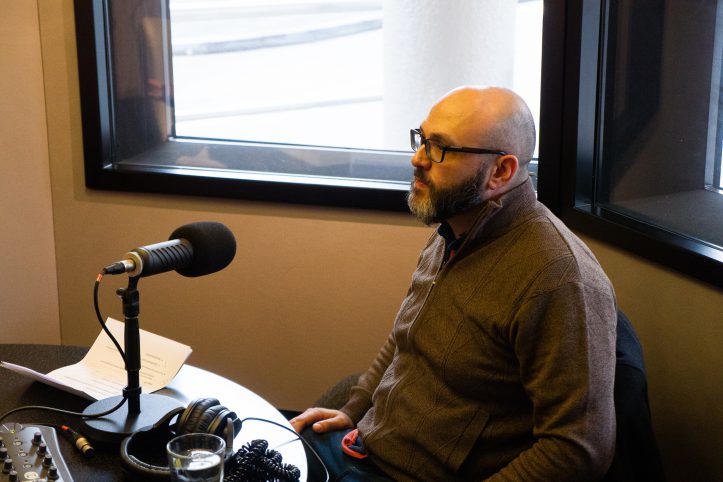
The State of State Taxes in NSW
| What area(s) of law does this episode consider? | Tax law, specifically New South Wales state revenue. This episode discusses the assessment of stamp duty, land tax and payroll tax, as well as the process for objecting to assessments and seeking merits review in the Supreme Court or NCAT. The process of obtaining private rulings is also considered. It also considers the effect of COVID-19 on tax policy, specifically concessions to land tax and payroll tax. |
| Why is this topic relevant? | Lawyers in many fields come across questions of tax law in their practices. Having a basic understanding of taxes at the Federal and State level (this episode focusing on tax law in NSW) will help lawyers to proactively identify tax issues before they arise. |
| What legislation / practice notes are considered in this episode? | Sections 3A, 3B, 10AA of the Land Tax Management Act 1956 (NSW) Commissioner’s practice note: Foreign surcharges and discretionary trusts (CPN-004 V2) Section 70 of the Payroll Tax Act 2007 (NSW) Section 50 of the Corporations Act 2001 (Cth) Section 89, Part 10 of the Taxation Administration Act 1996 (NSW) |
| What cases are considered in this episode? |
|
| What are the main points? | The Chief Commissioner of State Revenue has quite a broad range of powers and is responsible for administering taxation law in NSW. The Chief Commissioner administers:
Land tax: is an annual tax levied at the end of the calendar year. It is based on the combined value of all taxable land held by the land owner. There are exemptions, including: (1) a land owner’s principal place of residence; (2) where the land is used for the dominant purpose of primary production; and (3) land with a taxable value below the land tax threshold. Any changes to land holdings in the current year will only affect how much is levied the following year. Primary production land: under section 10AA of the Land Tax Management Act 1956 (NSW), rural land is exempt from taxation if it is used for primary production. Section 10AA(3) lists the instances when land is used for the dominant purpose of primary production which includes:
Foreign person surcharge; also known as surcharge purchaser duty, which is an additional duty applicable to foreign purchasers who must pay an additional 8% surcharge based on the value of the land. ‘Takers in default’ comes up in the context of a discretionary trust; it refers to a beneficiary identified in the trust deed for a discretionary trust to receive the income and capital of that trust if the trustee doesn’t exercise its powers to give that income and capital to anyone else. This is important in a discretionary trust because none of the beneficiaries have any right to anything, and distribution is entirely up to the trustee. A taker in default is designated to receive any income or capital that the trustee doesn’t decide to distribute to any other beneficiary. Payroll tax: is a tax on wages in NSW; if taxable wages exceed $1 million, payroll tax will be payable. Companies can be grouped under section 70 of the Payroll Tax Act 2007 (NSW) where they are related bodies corporate. Private rulings: can be issued by the Chief Commissioner in response to requests by taxpayers, clients, or their representatives, seeking clarification on the interpretation of the legislation for a specific situation encountered by a particular taxpayer. Unlike private rulings at Federal level which are published on the ATO Legal Database, Revenue NSW does not publish rulings. |
| What are the practical takeaways? | COVID-19 tax relief:
Land tax: be mindful that land tax is prospective; any changes to base documents, such as trust deeds, or the need for a private ruling must be done prior to 31 December. Primary production exemption: The exemption applies on a yearly basis which means that it could change over time. The landowner bears the onus of proving that the dominant use is primary production. The activities of third parties will be relevant. Objections: a taxpayer can object to a notice of assessment, but under Section 89 of the Taxation Administration Act 1996 (NSW) must do so no later than 60 days after service of the notice of assessment. Once the objection has been lodged, the Chief Commissioner has 90 days to finalise that objection. Once finalised, the objection is either allowed, partly allowed, or disallowed. If it’s disallowed or partly allowed, the taxpayer has the option of seeking external review at NCAT or the Supreme Court. NCAT or Supreme Court?: Generally, NCAT will receive objections in regards to smaller size claims regarding land tax, stamp duty (on the lower end) and first home owner grants, whereas objections related to complex stamp duty and payroll tax are usually pursued in the Supreme Court. |
| Show notes | Revenue NSW website – Land Tax Revenue NSW – Land Tax Calculator CPT Custodian Pty Ltd v Commissioner of State Revenue [2005] HCA 53 Sayden Pty Ltd v Chief Commissioner of State Revenue [2013] NSWCA 111 Commissioner’s Practice Note: Foreign surcharges and discretionary trusts (CPN-004v2) National Code of Conduct on Commercial Tenancies – Leasing Principles |
You must be a subscriber to access this content.
You must be a subscriber to access this content.